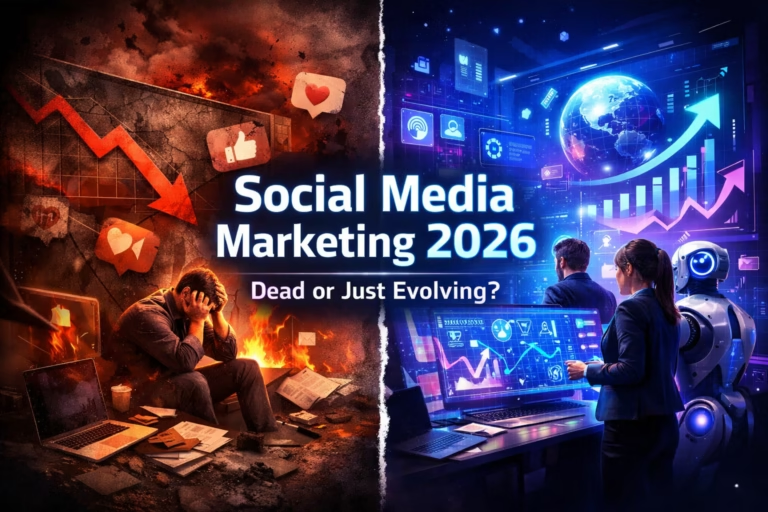
The Gaming Industry Landscape in India
The gaming industry in India has witnessed exponential growth over the past few years, evolving into a significant segment of the entertainment sector. The massive influx of smartphones and affordable internet access has fueled this expansion, allowing diverse gaming experiences to reach a wider audience. As of 2023, the Indian gaming market is projected to surpass USD 3 billion, showcasing its potential as a lucrative avenue for both developers and digital marketing agencies.
Among the various segments of gaming, mobile gaming stands out as the frontrunner. With over 500 million gamers in the country, mobile platforms account for nearly 80% of the total gaming revenue. This accessibility has cultivated a thriving ecosystem, ranging from casual games to more advanced gaming experiences, appealing to a broad demographic. Console gaming, while historically less popular, is also gaining traction, driven by increasing disposable incomes and a growing interest in premium gaming experiences. Major console manufacturers are actively working to capture the Indian market by launching affordable and localized gaming options.
Another vital segment shaping the industry’s growth is esports, which has surged in popularity among youth demographics. esports events and tournaments are attracting significant viewership and sponsorship, with prize pools for competitive gaming reaching impressive figures. This trend has inspired many digital marketing agencies to tailor their strategies toward reaching the gaming audience through engaging content and social media campaigns.
The demographics of Indian gamers are diversifying, with a notable rise in female gamers and players across various age groups. Through extensive research, marketing agencies now recognize the importance of age-appropriate content and targeted advertising to cater to specific groups, thus enhancing user experiences and engagement. Technological advancements, especially in augmented reality (AR) and virtual reality (VR), are further enhancing gameplay, providing immersive experiences that keep players engaged and often lead to increased spending on in-game purchases.
Role of Digital Marketing in the Gaming Sector
Digital marketing has become a crucial element in promoting products and services within the gaming industry, particularly in India, where the sector is experiencing exponential growth. With a rapidly expanding gamer demographic, effective marketing strategies are essential for engaging and retaining players. Digital marketing agencies are leveraging a variety of techniques tailored for this dynamic audience, ensuring that gaming products reach their target consumers effectively.
One of the most impactful strategies employed is social media marketing. Platforms such as Facebook, Instagram, and Twitter serve as vital channels for gaming companies to engage directly with their audience. These platforms enable companies to share content, announce new releases, and foster community interactions, creating a sense of belonging among gamers. Moreover, the use of visually appealing content, such as gameplay trailers and character animations, enhances the promotional efforts, making them more captivating for potential players.
In addition to social media, influencer partnerships have gained traction in the Indian gaming sector. Collaborating with influencers who already have established relationships with their followers can amplify brand reach. Influencers often showcase games through live streaming or gameplay videos, providing an authentic review or commentary that resonates with their audience. This personal touch ensures that new games gain visibility, driving interest and, ultimately, sales.
Search engine optimization (SEO) also plays a critical role in digital marketing for the gaming industry. By optimizing websites and content for relevant keywords, gaming companies can improve their visibility on search engines, making it easier for gamers to discover new titles. This practice not only drives organic traffic but also boosts credibility, as well-optimized content tends to rank higher and instills trust in users.
Finally, content marketing, through blogs, videos, and infographics, aids in educating potential players about gaming mechanics, updates, and community events. Case studies from successful Indian gaming campaigns illustrate how these digital marketing strategies can effectively increase user engagement and drive sales, highlighting the integral role that digital marketing agencies play in the flourishing gaming landscape in India.
Choosing the Right Digital Marketing Agency for Gaming
When selecting a digital marketing agency, particularly for the gaming industry in India, companies must evaluate several critical aspects that directly impact their marketing success. First and foremost, it is essential to consider the agency’s expertise within the gaming niche. An agency that has a deep understanding of the gaming landscape will be more adept at creating tailored marketing strategies that resonate with target audiences. This expertise allows for a nuanced approach that equals effective engagement with gamers.
Another key attribute to evaluate is the agency’s track record of successful campaigns. Prospective clients should seek agencies that can provide case studies or examples of past work that demonstrate measurable success within the gaming sector. This history of performance not only reassures gaming companies of the agency’s capabilities but also highlights the methods and tactics that have proven effective in reaching gaming audiences.
Furthermore, innovation plays a crucial role in the rapidly evolving gaming industry. The ideal digital marketing agency should be characterized by creative strategies that stand out in a crowded marketplace. By harnessing the latest technologies and trends, an agency can leverage innovative marketing solutions to captivate gamers and inspire engagement. Agencies that stay ahead of trends are invaluable partners in the competitive gaming industry.
Effective communication and collaboration between the gaming company and the digital marketing agency cannot be overstated. An open dialogue ensures that marketing efforts align with broader company goals and brand values. It fosters an environment where feedback can be exchanged and strategic adjustments can be made, thereby enhancing the overall efficacy of marketing initiatives. Ultimately, partnering with the right agency can significantly influence the success of a gaming venture, making it imperative for companies to carefully consider these attributes during their selection process.
Future Trends in Digital Marketing for the Gaming Industry
The gaming industry in India is poised for significant transformation, driven by advancements in technology and a shifting consumer landscape. One of the most anticipated trends is the integration of artificial intelligence (AI) into digital marketing strategies. AI can personalize user experiences, create dynamic content, and enhance customer targeting, allowing digital marketing agencies to tailor their campaigns to specific demographics effectively. This level of personalization is essential as gamers increasingly seek content that resonates with their individual preferences and behaviors.
Moreover, the rise of augmented reality (AR) presents exciting opportunities for marketing within the gaming sector. With AR technology becoming more accessible, gaming companies can engage users in innovative ways. For instance, promotional efforts may include immersive AR experiences, allowing potential players to interact with game elements in real-time. As digital marketing agencies recognize the capabilities of AR, they can develop campaigns that not only attract interest but also deepen user engagement, ultimately contributing to higher conversion rates.
Another trend to note is the evolution of influencer marketing. Games in India are now frequently promoted through partnerships with popular content creators who resonate with the target audience. Moving forward, this form of marketing is likely to become more sophisticated, with focus shifting towards micro-influencers who possess strong connections with niche gaming communities. Collaborating with such influencers provides a more authentic endorsement and allows brands to tap into diverse audience segments.
Finally, user-generated content (UGC) will become increasingly important. The gaming community thrives on sharing experiences and feedback. Encouraging players to generate and share content related to games fosters community engagement and builds trust. Digital marketing agencies can harness UGC to not only promote new releases but also create a sense of belonging among users. As these trends unfold, it is critical for gaming companies to remain agile and responsive, ensuring they adapt their strategies to maintain competitiveness in an ever-evolving digital landscape.








